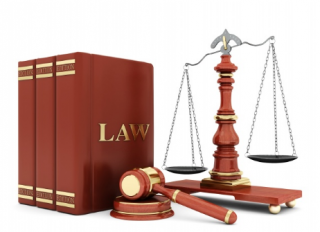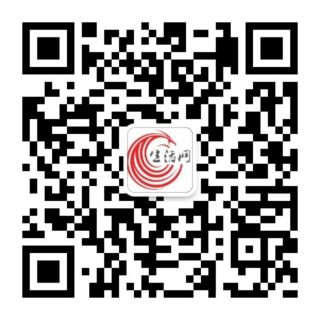
讲案例故事,学美国法律| 见义勇为免责法
美国法律纷繁复杂,在这里生活的中国人一定要学习基本的法律知识,不仅要做到知法懂法不犯法,还要学会保护自己的合法权益。亚特兰大华人生活网请到亚城知名律师方蕾为您讲案例故事,学美国法律。今天方律师给大家讲的是“免责法规”,跟方律师一起来学起来!
大家好!
今天我要与大家分享两项重要的“免责”法规:《善良的撒马利亚人法规》和《主权豁免权法令》,以及相关的法案。
《善良的撒马利亚人法规》保护医生及医护人员,甚至路人,在紧急情况下若向他人提供“自愿”、“无偿”急救医护措施,该医生,医护人员,或路人就无需为因急救[医护]措施而造成他人任何民事损害承担责任。《主权豁免权法令》则是保护在联邦或州政府工作的医生及医护人员在医疗责任纠纷诉讼案中免于个人责任。

“善良的撒马利亚人”之名取自圣经(《路加福音》10:25-37)中记载的“善良的撒马利亚人”的故事。这个故事讲述了来自撒马利亚地区的一名旅客,不顾宗教和种族背景的冲突,主动救助另一名遭到歹徒殴打和抢劫的旅客。
美国第一部《善良的撒马利亚人法规》是1959年在加利福尼亚州颁发的。该法规规定任何“在紧急状况及现场提供真诚急救护理的医生不应对其在提供该急救护理时的任何行为或过失所产生的任何民事损害承担责任”。该法规的制定旨在鼓励医生在紧急情况下给受伤之人提供急救治疗,而无需担心医疗过失责任。
之后,美国的其它州也都相继制定并实施了类似的法规。个州的相关法规根据可受保护的人群及急救措施,可分为三类:
1) 除了特定例外情况,只有受过医疗专业培训的人士才能免于民事损害责任。也就是说此法规只适用保护受过医疗专业培训的人士(如医生,护士等)。这一类法规实行范围包括康涅狄格州、伊利诺斯州、肯塔基州、密歇根州,和密苏里州五个州。
2) 虽适用于任何人,但急救措施必须具有“医疗救助”性(如“急救”,“医疗护理”和“保健护理”等提供医疗援助)。第二类法规实行范围包括爱达荷州、北卡罗来纳州、俄克拉何马州,和俄勒冈州四个州.
3) 广泛适用保护提供急救医护、治疗,或任何援助措施的任何人。这一类广泛实用于其他各州。
因此,大部分美国州颁发的《善良的撒马利亚人法规》适用保护任何人(不仅限于受过医疗培训的人士),为其提供因在紧急状况及现场实施真诚的急救,护理,或治疗等措施而产生的民事责任/损害赔偿的免责庇护。

在 2016年发生的Carter 诉 Reese 案 (N.E.3d 2016,2016 WL 4549025, Ohio) 中,卡车司机 Carter 起诉路人 Reese 行为过失 (但并非故意恶意的草率不当行为),导致他腿部严重受伤,以至截肢。
Reese 以俄亥俄州的《善良的撒马利亚人法规》作为辩护,因为 Reese是在听到 Carter 的呼救声后,自愿主动前往现场提供紧急援助的。当时,Carter 在跳到装载平台上想要关上拖车车门时,突然滑倒,他的腿被夹进了平台和拖车之间。Carter 无法自行解困,于是大喊呼救。Reese 是在听到 Carter 的呼救,自愿主动上前提供帮助。但不幸的是,在 Reese 试图移开压住 Carter 腿的牵引拖车时,他将卡车向反方向滑动,进而造成 Carter 的腿部严重受伤,以至不得不进行膝上截肢。
初审法院裁定 Reese 胜诉。Carter 提出上诉。
俄亥俄州上诉法院基于本州的《善良的撒马利亚人法规》,该法规明确规定:
任何人都不应为在紧急状况及现场实行急救护理或治疗等行为所引起的民事损害承担责任,除非该行为是故意或草率不当行为,以及该法规的制定的历史和解释确认,俄亥俄州的《善良的撒马利亚人法规》适用于在紧急状况及现场提供实施急救护理或治疗的任何人,包括非医疗专业人士;俄州上诉法院还认为该法规中所说的“实施急救护理”包括出于他人的安全和健康考虑而提供的医疗救助和其他任何形式的救助,并且该法规中所说的“紧急”是指不可预见的意外事件或需要立即采取行动措施的紧急状况。
在此案中,Carter 的腿被意外地夹住,无法自拔,需要立即帮助,因此 Carter 当时的状况属于“紧急” 状况;Reese在 Carter 的紧急状况下,当场立即对 Carter 采取了救助措施是符合《善良的撒马利亚人法规》中所说的“实施急救护理”。因为 Reese 的行为不存在涉嫌故意恶意或草率不当行为。
俄亥俄州上诉法院裁定Reese 因受《善良的撒马利亚人法规》保护,免除民事损害责任。就此,俄亥俄州上诉法院维持了初审法院的判决。
总之,这个法案进一步确认俄亥俄州(也是美国大多数州)的《善良的撒马利亚人法规》适用保护任何人,不仅限于医疗专业人士;并且适用任何形式的救助,不仅限于医护/疗救助。

下面的法案强调《善良的撒马利亚人法规》仅适用于主动自愿提供帮助的“无薪/报酬志愿者”,而不适用于在雇佣职责范围内或出于薪酬回报而提供医治援助的医护人员。
在 Home Star Bank and Financial Services 诉 Emergency Care and Health Organization, LTD. 案 (6 N.E.3d 128, 379 Ill. Dec. 51, 2014 IL 115526, 2014 Illinois) 中,伊利诺斯最高法院裁定,依据《善良的撒马利亚人法规》,急诊室医生在医院回复应急“Code Blue”时试图在重症监护室内急诊为患者插管治疗的行为不属于“免费”无偿为患者治疗的行为,即使这位急诊室医生对患者的插管治疗并没有收费。在此案中,原告起诉被告 Murphy 医生及其雇主,指控 Murphy医生在治疗患有会厌炎的患者Anderson 时存在过失疏忽,导致患者 Anderson 遭受严重的永久性脑损伤。原告声称 Murphy 医生对Anderson 的[过失]护理和治疗是造成 Anderson 脑损伤的原因。Murphy 医生否认了原告的指控,声称自己应受《善良的撒马利亚人法规》保护,免除他对过失疏忽的责任,因为他是向 Anderson 提供急救治疗,且 Anderson 未为此治疗付费。
初审法院根据《善良的撒马利亚人法规》判决被告 Murphy 医生及其雇主胜诉。原告向上诉中级法院提起上诉。上诉中级法院认为该法规仅适用于志愿者,不包括在雇佣职责内治疗患者并为此获得薪酬的医护人员。鉴此,上诉中级法院推翻了初审法院的判决。Murphy医生及其雇主向更高一级的最高法院提起审诉。
最高法院认为《善良的撒马利亚人法规》的宗旨在于鼓励人们即使在没有义务的情况下也要[积极]采取行动。最高法院同时也认同上诉中级法院的判决,认为 Murphy 医生为 Anderson 提供的插管治疗服务不能认为是“免费”的义务服务。Murphy 医生是有薪酬且有职责应对急诊状况的(例如回应医院 Code Blues 等紧急情况)。Murphy 医生应对急诊状况并不是出于志愿帮助,而是因为他的工作职责需要这样做。因此,Murphy医生基于他的医责向 Anderson 提供急救护理治疗的行为不应受《善良的撒马利亚人法规》的保护。鉴此,伊利诺斯最高法院维持上诉中级法院的裁决。
类似地,在 Chau 诉 Riddle 案 (254 S.W.3d 453, 2008 Texas) 中,值班麻醉医师及他的所属团队因在对原告新生儿进行插管治疗时的过失疏忽行为(导致该婴儿缺氧并造成其脑损伤)而遭到起诉。被告声称他的所谓的过失疏忽行为应受《善良的撒马利亚人法规》的保护而豁免。有证据表明,这位麻醉医师是产科接生团队中的一员,且在需要时为新生儿插管是他医责的一部分。因此,德克萨斯州最高法院强调,虽然《善良的撒马利亚人法规》旨在提升医护人员主动自愿参与紧急医护援助的积极性,即使该紧急医护援助发生在医院内,但该法规必须确保只有医护人员的真正志愿的医护援助行为才能受到该法规的保护和免责,而属于医护人员正常职业范筹内的医疗诊治行为是不能受该法规的保护及免责的。
基于《善良的撒马利亚人法规》, 联邦航空管理局 (FAA)在1998年制定了航空医疗救助法规确定在飞机上发生紧急情况时志愿提供救助的医护人员享有免责权。根据该航空医疗救助法规,“如果医护人员在飞机飞航当中[对病人或受伤人员]采取或试图采取紧急医护援助,医护人员在联邦或州的民事法庭因医护不当或过失疏忽而被起诉讼时应当免责,除非该医护人员,在提供紧急医护援助时,犯有重大疏忽或故意失职等不当行为”。
根据该联邦法规,医护人员是指在美国任何州具有医护执照或证书,或其他认资可以提供医疗服务,包括医生、护士、医师助理、护理人员,及急救医务人员。联邦航空管理局 (FAA) 还建议[航空工作人员在接受医疗援助前]要认真查证作为医护专家的乘客的医护凭证。
总之,基于这两个法规的保护,希望我们每个人更应该成为善良的撒马利亚人,在他人遇到紧急状况需要援助时,能义无反顾的向前献上我们真诚的救助。若在飞机上发生紧急情况需要医护救助时,医生,医护专家们也应该毫无顾忌,志愿,积极,认真地提供专业紧急医护援助。
《主权豁免权法令》作为免责法令可以适用于许多领域。在医疗责任纠纷诉讼案中,《主权豁免权法令》可以豁免为联邦或州政府工作的医护人员在有政府为被告的诉讼案中的个人责任。为联邦或州政府工作的医护人员包括在公立教学医院或政府附属或拥有的机构工作的医护人员,及代表政府在海外工作的医护人员等。因此,公立教学医院及政府部门的医生可以受《主权豁免权法令》的免责保护,而私立医院及诊所的医生就不受这个免责令的保护了。
另外,正如 Pike vs Hagaman (292 Va. 209, 787 S.E.2d 89, 332 Ed. Law Rep.542, 2016)一案,在裁定受雇于州立大学医院的被告护士是否因《主权豁免权法令》而免责,法庭必须参照考虑以下几个决定性因素:1)政府的主权及监控性;2)被告个人与政府的相关联性;及 3)被告个人的判断及实施权。在 Pike 案中,Virginia 高院法庭参照考虑了这几个因素后,最终裁定被告护士符合《主权豁免权法令》的免责保护。
作者:方蕾
English version
Good Samaritan Statute
In 1959, California enacted the nation’s first Good Samaritan statute,which provided that no physician or podiatrist, “who in good faith renders emergency care at the scene of the emergency, shall be liable for any civil damages as a result of any acts or omissions by such person in rendering the emergency care.” The purpose of this statute is to encourage physicians to provide emergency treatment to injured persons in emergency situations without fear ofliability for malpractice.
Since then, every state has enacted someversion of this legislation. These statutes generally fall into three categories:
1) those that specifically include by reference only medically trained persons;
2) those that apply to the rendition of medical aid by any person; and
3) those that more broadly apply to anyperson rendering emergency care, treatment, or other kinds of assistance without expressly requiring that such actions be medical in nature.
Five states (Connecticut, Illinois,Kentucky, Michigan & Missouri) have Good Samaritanstatutes that, with certain exceptions, expressly exclude only medically trained persons from liability for civil damages.
Four states (Idaho, North Caroline,Oklahoma & Oregon) have Good Samaritan statutes that apply to any person but expressly limit protection from liability to the rendering of medical aid through use of terms such as “first aid,” “medical attention,” and “health caretreatment.”
The remaining states have Good Samaritan statutes that broadly apply to any person who renders emergency care, treatment, or other kinds of assistance without an express requirement that those acts be medical innature.
Therefore, most of the states in US enact Good Samaritan statutesthat shield any person, not limited to only medically trained persons, from civil liability/ damages for administering emergency care ortreatment at the scene of an emergency in good faith.
In Carterv. Reese (N.E.3d 2016, 2016 WL 4549025), the truck driver Carter sued the passerby Reene for negligence. There, as the truck driver Carter pulled himself onto the loading dock to close the trailer door, he slipped and his leg became wedged between the loading dock and the trailer. Carter could not free himself and yelled for help. Reene heard Carter and[voluntarily] offered to help. Unfortunately, while Reene was attempting tomove tractor-trailer that had pinned Carter’s leg, he rolled the truck backwards, thereby injuring Carter’s leg, which had to be amputated above the knee due to the severity of the injuries. Carter sued Reese for negligence (not in willful or wanton misconduct). Reese asserted Ohio’sGood Samaritan statute as a defense and the trial court granted the defense and found for Reene. Carter appealed.
The Ohio’s Good Samaritan statute states: [N]o person shall be liable in civil damages for administering emergency care or treatment at the scene of an emergency, for acts performed at the scene of such emergency, unless such acts constitute willful or wanton misconduct. In view of the historical perspectives and interpretations of the Good Samaritan statute, the Ohio Appellate court affirmed thatGood Samaritan statute applies to any person who administersemergency care or treatment at the scene ofan emergency including, but not limited to, health care professionals; as used in Good Samaritan statute, phrase “administering emergency care” includes rendering medical and any other form of assistance to the safety andwell-being of another; as used in Good Samaritan statute, term “emergency” means an unforeseen combination of circumstances or the resulting state that calls for immediate action.
Here, Carter stuck his leg and could not free himself from a situation that resulted from an unforeseen combination of circumstances and that called for immediate action, and thus constituted an emergency; Reene performed acts at the scene of an emergency that constituted administering emergency care to Carter.Since there is no allegation of willful or wanton misconduct, Ohio Appellate Courtfound Reese not liable in civil damages. Accordingly, the Ohio Appellate Courtaffirmed the trial court’s judgment.
Further, Good Samaritan statutes only apply for volunteers, not to those who treat patients within the scope of their employment and are compensated for doing so.
In HomeStar Bank and Financial Services v. Emergency Care and Health Organization, LTD. (6 N.E.3d 128, 379 Ill. Dec. 51, 2014 IL115526, 2014), the Supreme Court of Illinois held that emergency room physician did not treat patient “without fee” for purposes of the Good Samaritan Act when he responded to a code blue at a hospital and attempted to intubate patient in the intensive care unit. Here, plaintiff sued defendant Dr.Murphy andhis employer, ECHO, alleging Dr. Murphy was negligent in treating Anderson, who was diagnosed with epiglottitis, and suffered a severe and permanent brain injury. The plaintiff alleged that Dr. Murphy’s care and treatment of Anderson were the cause of Anderson’s brain injuries. Dr. Murphy denied allegation, asserting that he was immune from liability for negligence under the Good Samaritan Act because he provided emergency careto Anderson, and Anderson was not billed for that care.
The trial courtrelied upon the Good Samaritan Act and found for defendant. Plaintiffs appealed to the Appellate Court. The Appellate Court held that the Good Samaritan Act was meantto apply to volunteers, not to those who treat patients within the scope of their employment and are compensated for doing so, therefore, overruled the trial court’s decision. Defendants appealed to the Supreme Court.
The Supreme Courtstates that the purpose of Good Samaritan Act is to encourage people toact when they otherwise have no duty to do so. The Supreme Courtthen agreed with the Appellate Court’s conclusion that Dr. Murphy did notprovide his services to Anderson “without fee.” He was fully compensated and responsible to the emergency (e.g., respond to Code Blues) not because he was volunteering to help but because it was his job and responsibility to do so.Therefore, the Good Samaritan Act does not apply to Dr. Murphy when provided emergency care underhis duty to Anderson. Therefore, the Supreme Court of Illinois affirmed the appellate court.
Similarly,in Chauv. Riddle (254 S.W.3d 453, 2008), the on-call anesthesiologistand his professional association were sued for negligence in intubating plaintiff’s newborn infant deprived him of oxygen and caused brain damage. Defendants asserted immunity/protection from the Good Samaritan statute. There was evidence that the on-call anesthesiologist was part of labor and delivery team and that it was part of his job to intubate a newborn if the circumstances required. The Texas Supreme Court therefore emphasizes that, while Good Samaritan statute is intended to increase the incentives for physicians to respond voluntarily tomedical emergencies, even if theyoccur in a hospital, the exclusions built into the Good Samaritan statute ensure that medical professionals areonly entitled to the defense if their actions are truly voluntary, not simply part of the professional’s ordinary duties.
Aviation Medical AssistanceAct of 1998
Liability protections exist for medical personnel who volunteer to provide assistance on aircraft in the event of anemergency. According to the Aviation Medical Assistance Act of 1998,“an individual shall not be liable for damages in any action brought in a Federal or State court arising out of the acts or omissions of the individual in providing or attempting to provide assistance in the case of an in-flight medical emergency unless the individual, while rendering such assistance, is guilty of gross negligence or willful misconduct.”
According to the federal statute, a medically qualified individual includes any person who is licensed, certified, or otherwise qualified to provide medical care in a State,including a physician, nurse, physician assistant, paramedic, and emergency medical technician.
The Federal Aviation Administration (FAA) suggests that a good faith effort be made to check the credentials of passengers holding themselves out as medical specialists.
Sovereign Immunity
Sovereign liability conferred absolute immunity from lawsuits in favor of the sovereign (ie, the government). Under certain circumstances, physicians working as employees of the federal or state government may be protected against individual liability if the government is substituted as the defendant. In the medical negligence setting, sovereign immunity can operate to protect the clinician, provided there is a credible nexus between physician activity and substantial government interest, and if certain requirements pertaining to government ownership or interest, as well as the nature of physician activity are shown. Specifically, medical personnel working overseas on behalf of the government, those working in teaching hospitals, or institutions affiliated with, or owned by, the government may have relatively more protections against medical negligence lawsuits than private clinicians.
In Pikev. Hagaman (292 Va. 209, 787 S.E.2d 89, 332 Ed. Law Rep. 542,2016), Patient brought medical malpractice action against nurse and state university hospital,alleging negligence in post-surgical care of patient. Nurse filed plea of sovereign immunity. The Supreme Courtheld: nurse’s conduct was essential to carrying out express interest of Commonwealth, as would support finding that nurse was entitled to sovereign immunity; conduct of nurse involved use of judgment and discretion, as would support finding that nurse was entitled to sovereign immunity; and State had high level of control and direction over nurse, aswould support finding that nurse was entitled to sovereign immunity.








